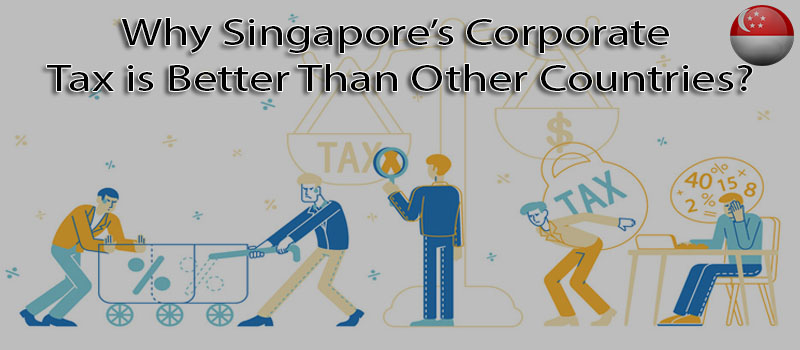
Over the years, Singapore’s reputation as a global trade and finance center has soared. The growth is a result of government tax policies that favor both local and international businesses.
Its geographical locations also make it a gateway for investors and companies into expanding to Asian economies.
But how does the tax structure compare to other countries?
Stand out Tax Rates
17% is the flat rate of corporate income tax in Singapore. Companies can lower the effective rate using incentives offered by the Inland Revenue Authority of Singapore (IRAS).
The marginal rate ranks third globally, but the effective tax rates are ahead of many developed countries.
Resident taxpayers incur a personal income tax of 22%. The highest tax bracket as of the 2019 financial year is for income more than $320,000. Capital gains are non-taxable.
Tax Haven for New Business Ventures
Startups in Singapore enjoy a $125,000 tax exemption on their first $200,000 revenue for the initial three consecutive years following incorporation.
However, the company must have at most 20 shareholders to qualify for the benefit, among whom one must have a minimum of 10% stake.
If a company did not avail of the startup company exemption, they could opt for the partial tax exemption.
It ensures a $102,500 exemption on the first $200,000 chargeable income.
Industry-specific Tax Breaks
Specific industries enjoy additional tax benefits on offshore funds, qualifying for foreign banks and global trading companies –
- Banks can withhold exemption on payments in favor of non-residents for agreements made from April 1, 2011, to December 31, 2026.
- Qualifying offshore accounts enjoy tax exemption on income from gains, profits, dividends, and interest amounts from traditional investments such as bonds, shares, stocks, and deposits.
- If a global trading company qualifies for Singapore’s Global Trader Programme, they receive a 5% to 10% tax concession for three to five years. Any company with a decent international trade record can get the Global Trader status.
Governing Bodies in Singapore
The Monetary Authority of Singapore is in charge of financial regulation. Singapore law mandates that financial institutes cannot access companies’ private records.
In case a foreign authority issues a request based on any account involved in criminal activity, there are exceptions to the banking confidentiality agreement.
Banks and other financial institutions work to prevent money laundering and other international crimes.
Call to Action You can learn more about Singapore’s business-friendly tax structure by filling up the form on our website and getting in touch with financial experts.
